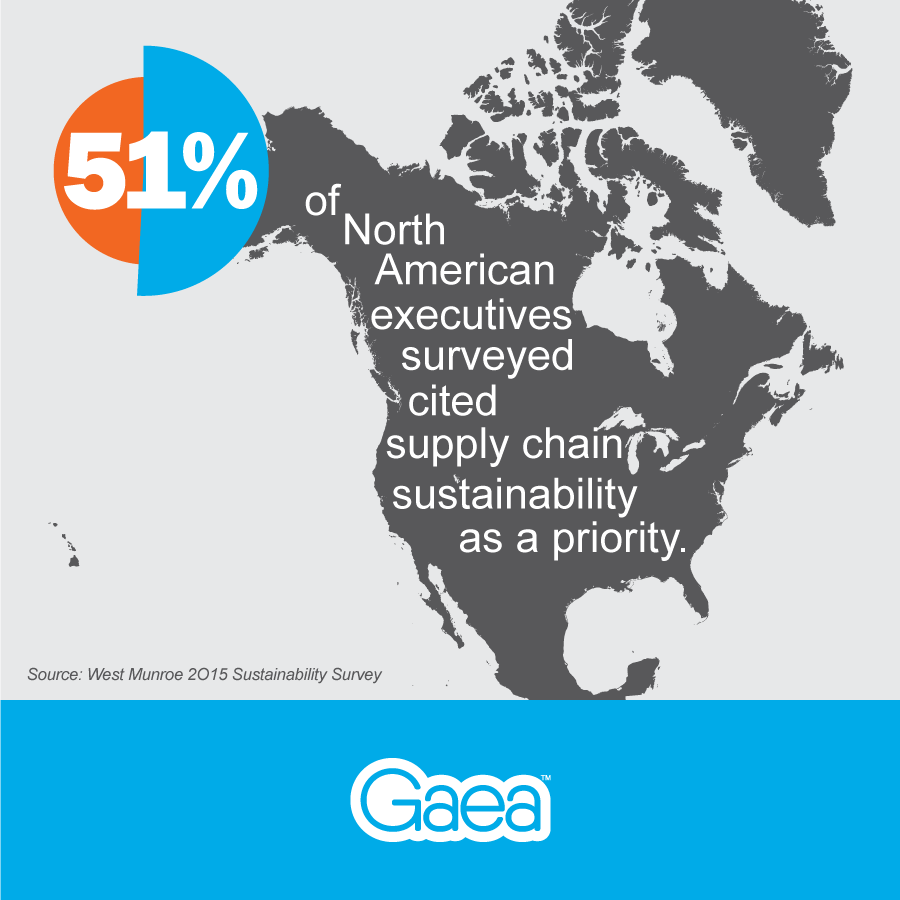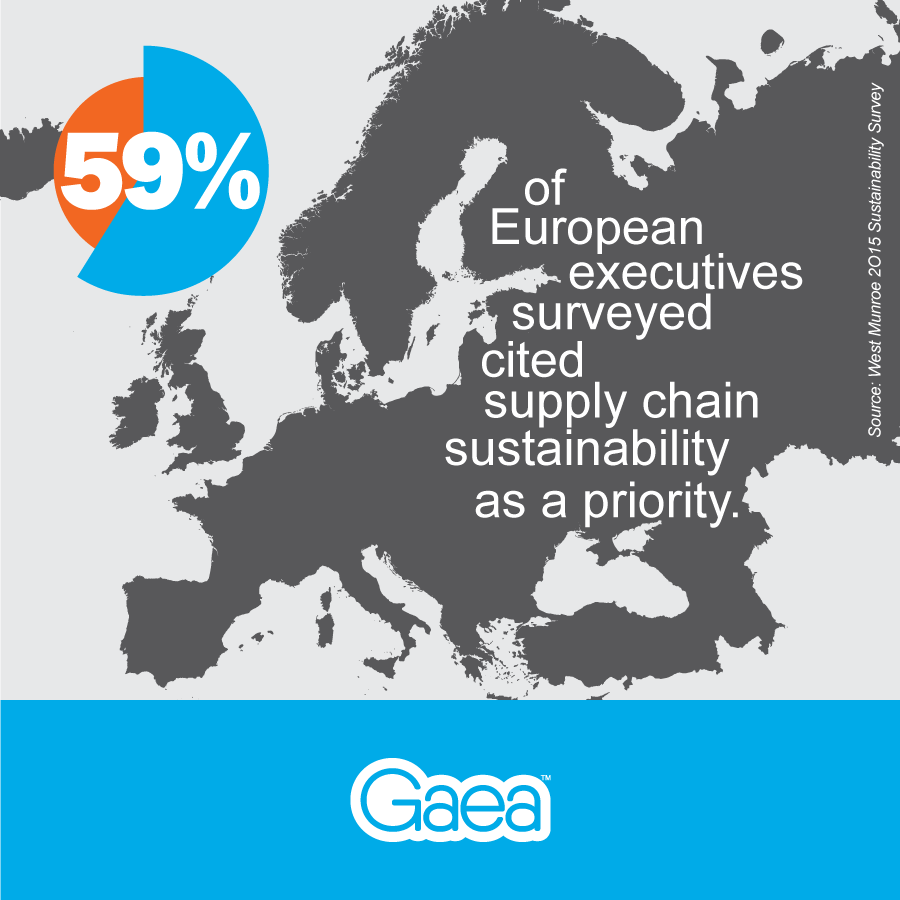 West Munroe recently spearheaded a supply chain sustainability study with Loyola University Chicago and BearingPoint. More than 50 supply chain executives at companies whose annual revenue ranged from $100 million to $120 billion were surveyed.
West Munroe recently spearheaded a supply chain sustainability study with Loyola University Chicago and BearingPoint. More than 50 supply chain executives at companies whose annual revenue ranged from $100 million to $120 billion were surveyed.
Study Results
While 51% of North American executives cited supply chain sustainability as a major strategic priority, 12% placed no strategic importance on sustainability. Remaining respondents were split between addressing supply chain sustainability over the next 1-3 years (22%) or the next 3-5 years (14%). European results were slightly more optimistic, with 59% of those surveyed stating that a sustainable supply chain is already a strategic priority.
Regardless of region and the individual breakdown, at least half of the respondents don’t have any plans to move forward with sustainability any time soon. And even with the half that claim sustainability as a major priority, there aren’t many firm plans in place to do so. Why? As Munroe reported, “until regulations force action, many companies won’t be able to find resources and funding to make significant change.”
 Results show that even among companies embracing sustainability initiatives, motivation is universally based on improving brand image rather than environmental impact. The studies also mention that environmental impact is a larger concern in North America than it is in Europe.
Results show that even among companies embracing sustainability initiatives, motivation is universally based on improving brand image rather than environmental impact. The studies also mention that environmental impact is a larger concern in North America than it is in Europe.
On the other hand, perhaps the glass is half-full and supply chain companies will take on sustainability not as an inevitable forced action full of regulatory requirements, but as an opportunity to be a leader in an emerging new category of efficiency. One that will ultimately help not just those leading the charge, but everybody around the world.
Is it wishful thinking to hope that there’s still a company or two out there willing to put people and the environment ahead of short-term profits? And won’t those pioneers ultimately reap the long-term rewards of customer satisfaction, loyalty, and brand recognition, making that initial investment in sustainability more than worthwhile?
There are still trails to be blazed.
Review the full West Munroe study here. →

